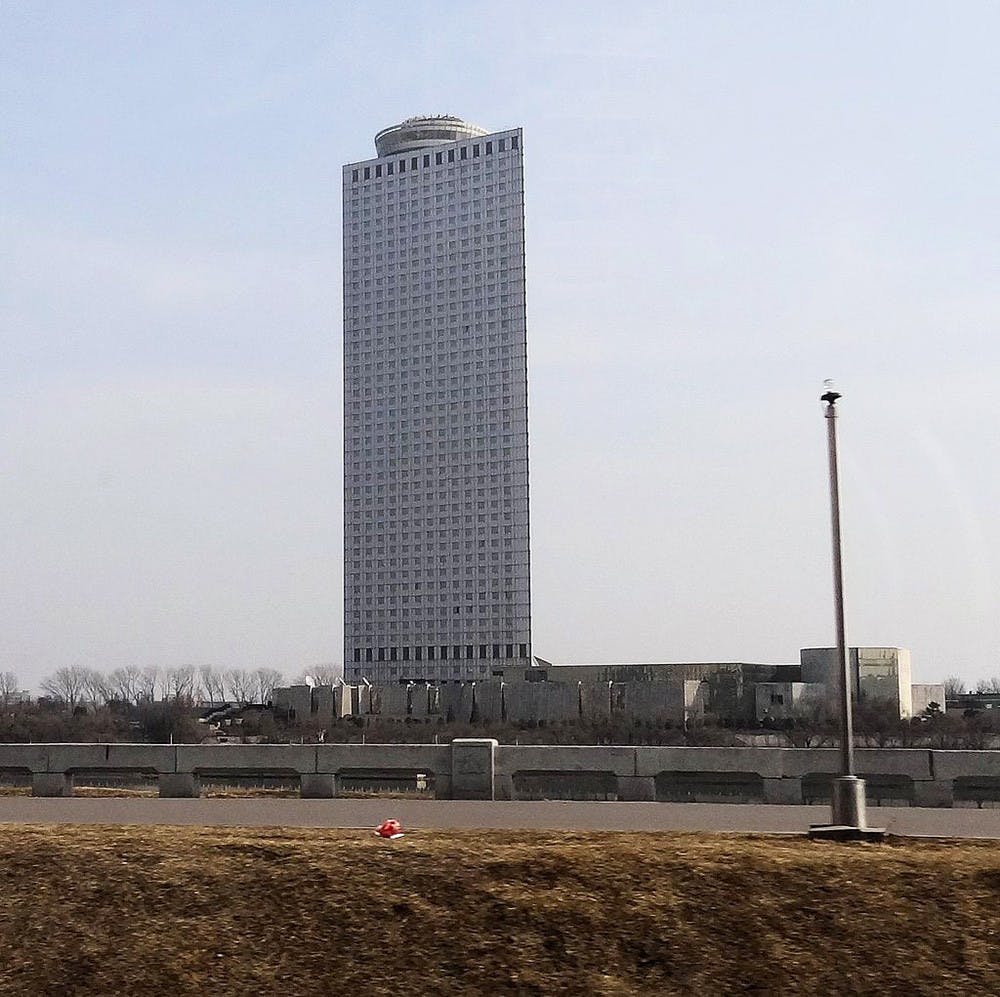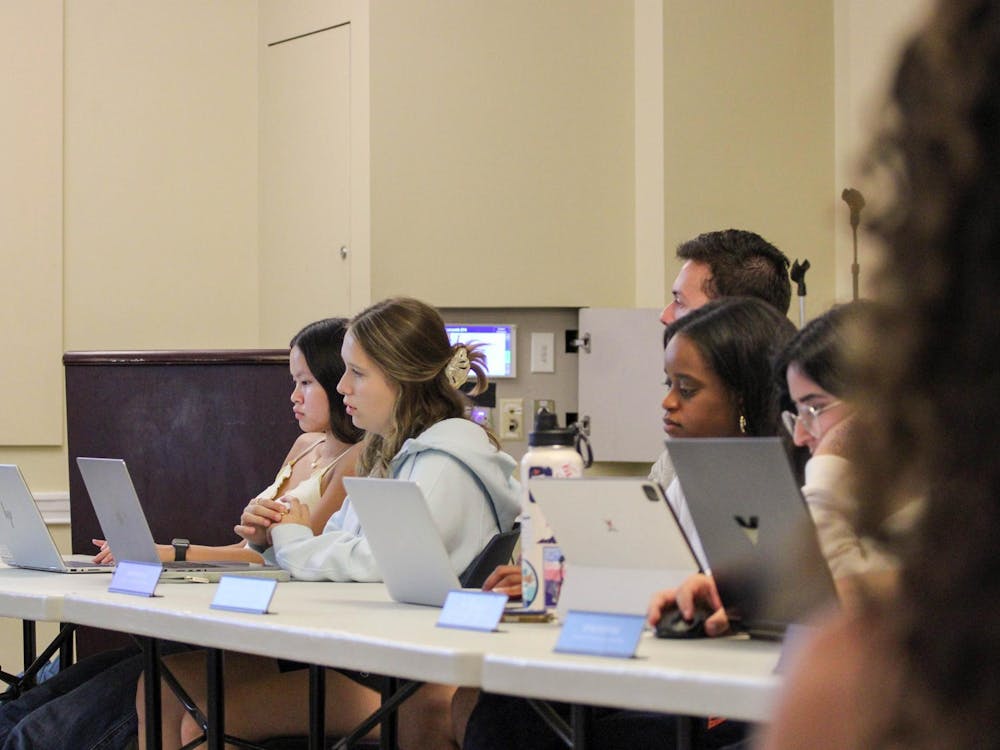Third-year Commerce student Otto Warmbier has been detained in North Korea for over two months following his arrest for an alleged “hostile act” against the Democratic People’s Republic of Korea.
In a press conference Feb. 28, Warmbier confessed to attempting to steal a political banner from the Yanggakdo International Hotel in Pyongyang.
Warmbier said in his confession he was tasked to steal the banner with support from Friendship Methodist Church in Wyoming, Ohio, the Z Society and the U.S. government. The groups in question have not confirmed their involvement.
Historic context of U.S.-North Korea relations
Associate History Prof. Emeritus Ronald Dimberg said the current situation is unsurprising given the current and historic tensions between North Korea and the United States.
People need to consider American-North Korean relations from Pyongyang’s point of view regardless of their personal opinions, Dimberg said.
“Is this behavior justifiable? No. Is it rational? I would argue yes because of the way Pyongyang perceives themselves in the world right now,” Dimberg said.
Dimberg said North Korea has been isolated in the international community since the collapse of the Soviet Union and has felt threatened by the United States since the Korean War.
“During the Korean War, the U.N. — effectively the U.S. — carpet bombed North Korea, perhaps justifiably,” Dimberg said. “But we did destroy many, many cities and towns and hamlets and lives with bombing. The North Koreans have never forgotten and the North Korean leaders will not let … the North Koreans forget that.”
Following the war, the United States built up a significant military presence south of the Korean Demilitarized Zone in South Korea and eventually introduced nuclear weapons to the Korean peninsula, Dimberg said.
Dimberg said North Korea has felt threatened by this military presence as well as rhetoric from American leaders, including former President George Bush’s 2002 “axis of evil” speech which labeled Iran, Iraq and North Korea as enemies of the United States and further heightened tensions between North Korea and the United States.
“We had already invaded one of the countries, we were threatening to invade another one. And what’s left? The third — North Korea,” Dimberg said. “We showed ourselves capable of invading, threatening to invade. We were not threatening to invade North Korea at that point, but [North Korean leaders thought], ‘we’re next on the list.’”
Former detainees’ experiences
Former American detainees held in North Korea have said they were isolated by the government during their detainment.
Journalist Euna Lee was held in the DPRK for about 6 months in 2009 after she was caught alongside Laura Ling on the border between China and North Korea. Lee was arrested for entering the country illegally.
Jeffrey Fowle was held for about 6 months in 2014 after he left a Christian Bible in a nightclub.
Both Lee and Fowle were eventually released and currently live in the U.S.
“Looking back, I was treated fairly during my detainment in the sense that they provided me with a simple Korean meal three times a day and I was able to see a doctor when I was sick,” Lee said in an email statement.
Lee said the interrogation process was tough, although she said she was never physically threatened.
“The difficulty was that I had no access to any information besides what the [North] Korean officers brought to me,” Lee said.
After his arrest in April 2014, Fowle was held in the Yanggakdo Hotel in Pyongyang for three and half weeks and was eventually transferred to a “guest house.”
“I was treated reasonably well at both places,” Fowle said. [I was] never physically abused, [and was given] three meals a day.”
Although Fowle was held in isolation, he said he was brought meals by women at the guest house and was allowed to interact with an interpreter for 30-45 minutes a day.
Like Lee, Fowle said he was also limited in his access to media.
Domestic prisoners are held in separate conditions than foreign detainees in North Korea, Lee said.
“We've heard about the unbelievable stories about the [North Korean] labor camps from [North] Korean defectors about how the prisoners live in a below human level,” Lee said. “Compared to those stories, foreign detainees have definitely been in a fairer conditions. But a prisoner is a prisoner.”
Lee said she was under constant surveillance by guards.
“Having no visitors and no freedom, no access to the outside news will be hard for anyone who is detained in a country like [North Korea],” she said.
Fowle said the differences between the treatment of foreign and domestic detainees are “like night and day.”
“After going through what I went through, I began to realize that the foreigners were kept separate,” Fowle said.
Some families are placed in North Korean prisons and camps “for generations,” Fowle said.
Fowle said the North Korean government keeps foreign detainees in separate facilities because foreigners are eventually released and share information about their conditions.
“They want to keep [the prisoners] in isolation so they can completely control the conditions that they’re immersed in and come back and relay this information — they were not beat, they were not starved, they were not treated badly,” Fowle said.
While Dimberg said the North Korean government is not irrational, he does not deny they can be extremely cruel and he understands that the current situation is dangerous.
“It is encouraging to me that no one has come out immediately and made some hawkish statement about [Warmbier’s detainment]. Let’s see how it plays out,” Dimberg said. “Now, in the meantime this poor young man is suffering, his family is suffering, his friends here are suffering. I won’t deny that, but I think it’s important not to overreact to this.”
Current U.S. approach to North Korea
The United States does not have formal diplomatic relations with the North Korean government. The Swedish Embassy in Pyongyang acts as the “Protecting Power” for U.S. citizens in North Korea.
According to the State Department, Warmbier was visited by a Swedish official March 2.
Tensions with the North Korean government have risen in recent months with President Barack Obama’s administration and United Nations approving new sanctions against the DPRK in response to North Korean missile tests and developments in its nuclear capabilities.
Dimberg said leaders who advocate for military force against North Korea need to consider the long-term implications of military aggression.
“I accept the argument that you can’t be concerned only about today, you have to be concerned about tomorrow as well,” Dimberg said. “Overthrowing the North Korean regime is not the way to behave.”
The Chinese government would rather have a nuclear North Korea than a collapsed state, Dimberg said, because of the millions of refugees who would enter China in the event of the North Korean government collapsing.
An ideal American policy towards North Korea would consider their perspectives on international issues and encourage policies of “loosening up” with regards to markets, Dimberg said. It also would encourage “trust politics” between North and South Korea, with each side making compromises with one another.
“I regret that so few American leaders and policymakers even try to understand North Korean behavior from the perspective of Pyongyang,” Dimberg said.







